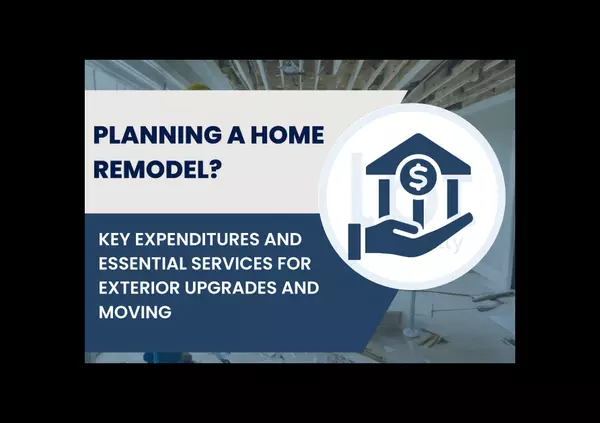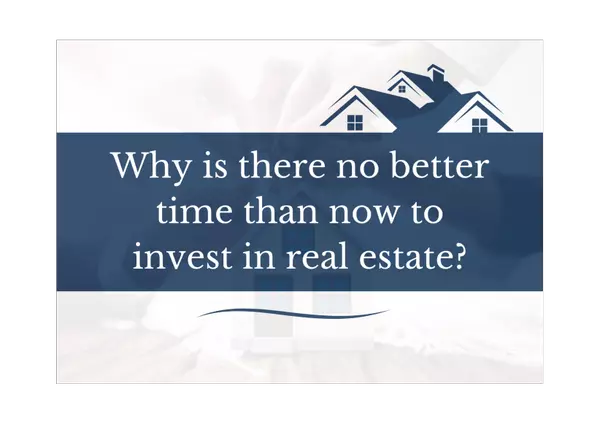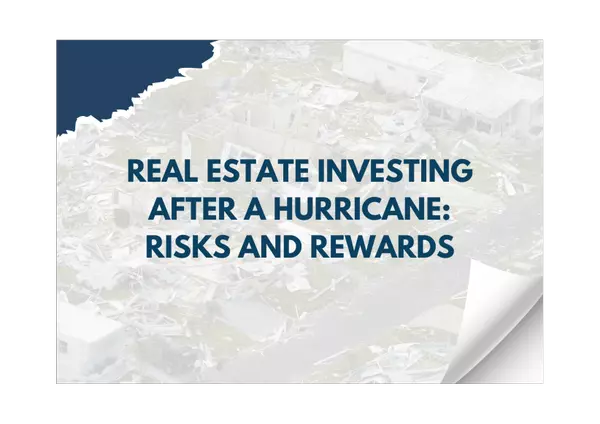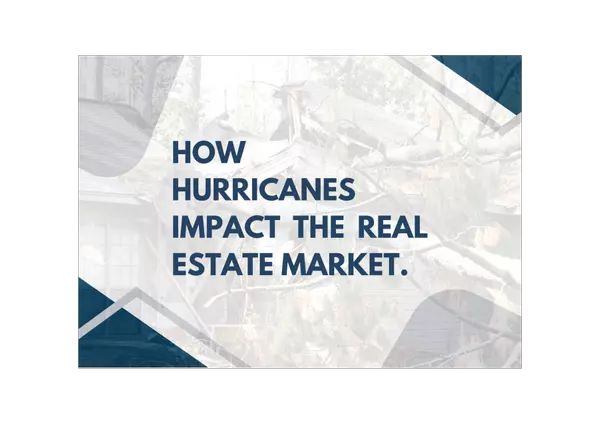
How Hurricanes Impact the Real Estate Market
While being a realtor, I myself, deal with the aftermath that these hurricanes pose to the ever-evolving real estate industry. It only takes one serious incident such as hurricane and the result is widespread impact that can reach out to the realestate market itself. Thus, it is crucial for the buyer, seller and investor to know how hurricanes affect property value, demand and real estate market. 1. Delays in Buying and SellingOf all the effects caused by a hurricane, one of the first to present itself is the slowdown of real estate transactions. Closing are frequently delayed while the buyers, sellers, and lenders analyse the situation. Sales contracts are usually canceled or postponed, appraisals are delayed and, in a very large number of cases, buyers prefer to wait on the sidelines with the market changes after a storm. Being a realtor my duty is to make clients understand that they should expect such delays and they should be prepared when buying or selling property. 2. Rising Insurance CostsAnother change in the properties of the real estate market that occurs after hurricanes is increased hurricane insurance rates. Hurricane prone areas are characterised by high insurance costs and this is a factor that could put off real estate investors or indeed cause them to adjust their prices. In my advice to my clients, I urge them to include these extra costs in their decision making while conducting their home purchase especially when they’re targeting the hurricane zones in the country and be ready to pay more than the current premiums if they were to rise in the future. 3. The result is shown in terms of property damage and market value.Hurricane comes with the sad reality of a higher tendency of property loses. Damage to homes by water, roof, or wind becomes a problem when such houses become difficult to sell because their market prices are relatively reduced. Hence, as a real estate agent for selling homes, I assist the homeowners to go through this challenging process, in order to be able to do the needful of fixing up their properties. Buyers, I assist them determine those houses that were well rehabilitated and those that are most likely to experience structural challenges in the near future. 4. Changing Buyer PreferencesAfter the hurricanes appear to be more selective and often prefer using the house that can resist hurricanes. Among them are structures with windows and sliding glass doors shielded from impact, buildings set on raised floors, and reinforced roofs. Hurricane season has become more frequent over the years, and with it comes the desire to have a home that can withstand such disasters, that is why I help my clients to acquire homes that offer some levels of protection during the stormy season. 5. Long-Term Market ShiftsOne of the less apparent but more long standing effects of hurricanes on real estate is how hurricanes affect the long term purchasing habits of people. Sometimes investors avoid investing in the areas which are often hit by hurricanes thus changing property demand. But at the same time it also opens opportunities for buyers and investors who will be ready to invest in homes that are hurricane-proof because in those regions people learn their lessons and always build better homes in the future and there could be even continued rise in demand with each subsequent storm. In the long term, I guide clients through market trends and assist in avoiding possible pitfalls, both in the short and long term as your realtor for property. 6. Lack of Stock Foods and Their DemandWhen hurricane strikes, it affects the housing stock especially in the region that has been most affected by the calamity. This scarcity of homes effectively available for ownership can make the market more buyers’ choices usually in properties that are not damaged, or are capable of being damaged by future hurricanes. It is important, especially for a realtor working in the Florida market, to note that these inventory shortages are real and strive to ensure buyers secure homes in the current market. Thus, hurricanes are capable to make a great impact on the real estate market: insurance rates grow, consumers change their preferences, and transactions take time. Being a realtor, such impediments make my duty to assist my clients in navigating these hurdles as they make appropriate decisions in the market either for the purchase, selling or investment.If properly equipped, we don’t have to fear the turbulent waters of real estate investment out at sea.e is how they shift buyer behavior over the long term. Many investors may steer clear of areas prone to frequent hurricanes, leading to shifts in property demand. However, this also presents opportunities for buyers and investors willing to invest in hurricane-resistant homes, as those areas often rebuild stronger and may see increased demand over time. As your realtor, I help clients navigate these long-term market shifts, ensuring they make informed decisions that consider both immediate and future risks. 6. Inventory Shortages and Increased DemandIn the aftermath of a hurricane, the housing inventory often decreases, especially in hard-hit areas. This reduction in available homes can create a more competitive market, driving demand for properties that are either undamaged or designed to withstand future storms. As a realtor working in the Florida market, I’ve seen these inventory shortages firsthand and work diligently to help buyers find homes that fit their needs, even in competitive conditions. In conclusion, hurricanes can have a profound effect on the real estate market, from increasing insurance costs to altering buyer preferences and causing delays in transactions. As a realtor, I’m committed to guiding my clients through these challenges, ensuring they make the best decisions whether they’re buying, selling, or investing. With the right knowledge and preparation, we can navigate the stormy seas of real estate together.
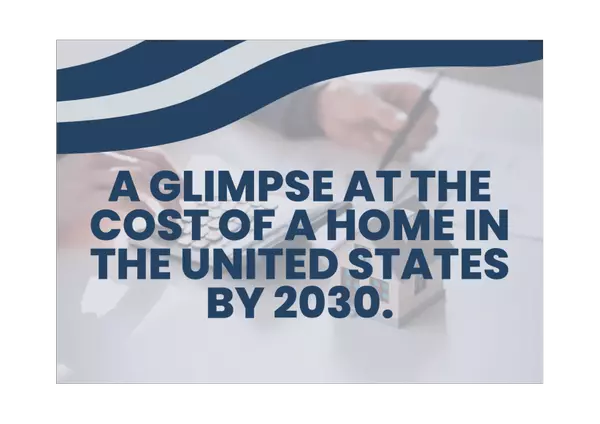
A glimpse at the cost of a home in the United States by 2030.
A glimpse at the cost of a home in the United States by 2030.Several patterns may be seen today that will define the US housing market in the near future, by the year 2030. In this blog, we look at the trends that will influence property values over the next decade, as well as what to expect by 2030.This means that the first time homeowners will have to save for more years and have a better income to be able to purchase homes in future. 1. Inflation and Other Causes of the Rising Home PricesOver the past, inflation has also led to increase in house prices with an average rate of growth of 3-4% per year. If this trend persists as it is expected, a home valued at the current $400,000 could cost more than $500,000 in the next ten years. Other factors that will lead to increased home prices include; Increased costs of materials and labour. This means that the first time homeowners will have to save for more years and have a better income to be able to purchase homes in future. 2. Urbanisation and the Need for City HousingNew York, San Francisco and Los Angeles are some of the most expensive places to buy a home in the United States; the prices are expected to continue to rise by 2030. Higher residents’ population and the constrained housing stock will continue to drive the demand in these cities. By the year 2030 prices may go up between 10-15%. But secondary cities such as Austin, Boise, and Charlotte are also going to see price appreciation because of their population and employment generation. This is because, as more people look for cheaper options than living in the big cities, these secondary markets will grow, and the prices of homes will definitely rise. 3. The Impact of Smart Homes and Technologies to PricesSmart home technology is expected to become essential in setting the price of homes in the future. In the next 10 years, it is expected that the use of advanced technologies including smart thermostats, security systems, and energy efficient products will increase the cost of homes, but the desirability of homes will also rise. The next residents will be ready to overpay for the houses that have solar panels and rational design of the construction to have lower expenses for the further usage of energy sources. 4. The Effect of Remote Work on Home ValuesThe Fact that most people are now working from home has greatly affected the real estate market. Before the COVID-19 outbreak, the employees used to reside in or around the metropolitan cities that have better employment opportunities. Nevertheless, the change of work to remote has enabled individuals to relocate from big cities to the suburbs or even rural areas. In this regard, the rate of growth of demand and prices is likely to remain on the same trend by 2030, with more affordable regions also feeling the spikes. Boise, Denver and Nashville, for instance, are likely to see huge price hikes as more workers shift base to these locations. Suburban houses will be highly sought after, and may even become cheaper than they are now, meaning the cost of living in ‘budget’ areas will also go up. 5. Lack of Supply and Cost ConstraintsThe problem of supply-demand gap is one of the major factors that will affect house prices in the future. The major challenges that have made the U.S fail to meet the housing deficit include costly construction, restrictive covenants, and lack of workforce. These supply-side factors are anticipated to remain problematic to the extent that they will help to sustain the upward trend in house prices to 2030. Other cities such as San Francisco and Seattle which have supply constraints at present are expected to witness further price increase. The affordability challenge will also be an important one, especially in the parts of the market that remain undersupplied. 6. Interest Rate and Housing AffordabilityAnother factor which has a very important influence on the construction cost of houses is the rates of interest on mortgage loans. Rising rates may not be a problem in the near future, but if they do come by 2030, borrowing will be costly and home buying may be out of reach for many people. This can only lead to a decrease in demand to some extent because there are other factors such as inflation and availability of resources which cannot lead to a decrease in price. For the buyers, it means that there will be fewer homes that are affordable but overall price trends of homes are expected to go up and this is going to remain a key issue in the ensuing ten years. 7. Environmental Influences and Home SelectionGlobal climate change will therefore be a major factor affecting the real estate market in the future by the year 2030. The demand may also be low among those in homes that are built in coastal areas or areas vulnerable to disasters such as floods. Public awareness of climate change is higher and people may not wish to invest their money in property in high risk areas for fires, hurricanes or floods. On the other hand cities with good infrastructure and climate change proof will be more appealing to the buyer thus raising the price in those areas. House made of sustainable materials and energy efficient technologies will also appreciate as more people will be willing to pay for the house that is constructed with an aim of conserving environment. 8. In this paper, the author defines foreign investment in U.S. real estateIt is also well known that foreign investment has contributed to the growth of home prices as it does in Miami, New York and Los Angeles. This is to mean that foreign buyers may still be interested in buying the U.S real estate especially in the big cities thus prices are expected to increase. The development of the global economy or the control of foreign investments may either accelerate or decelerate this tendency. Conclusion: What to Expect by 2030Homes in the United States are projected to become more expensive by 2030 because of inflation, increased urbanisation, technology, and remote work. The greatest percent increase in premiums will be observed in cities with high demand and limited supply, while suburban and rural areas will also rise as the work-from-home model changes people’s perception of where they want to live.
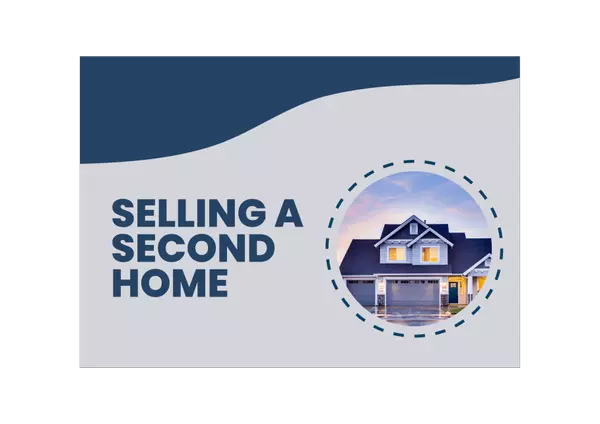
Selling a Second Home
It is, however, important to note that owning a second home is a great thing that can help you have a good holiday home, source of income from the house or a good investment for the future. However, when it is time to sell that second home there are many potential consequences that homeowners should be prepared for. It is important to understand the financial, tax, and the personal consequences and that is why it is important to explore the reasons as to why one may want to sell their business through financial constraints or to pursue another venture.In this article, we will explore the following key impacts of selling a second home, the differences between selling a second home and a primary property and how one can ensure that the process is as smooth as possible.1. The Capital Gains TaxThis article briefly discusses capital gains tax which is one of the financial consequences of selling a second home. If you sell your main house, you may be able to take advantage of the main house Exclusion by which you are allowed to exclude the first $250,000 of the gains from capital gains tax or $500,000 for married couples. This does not, however, apply to second houses.It is for this reason that it is probable that any profit made from the sale of a second house will attract capital gains tax. The tax rate is dependent on the period of time that you have held the property. If you have held the property for over a year then it will be taxed at the long-term capital gains tax rate which range from 0% to 20% based on your income.2. Decreased rental incomeIf you have been using the second house for rent, then selling it you will be let go of an income source. This can be a big hit especially if you depended on the rental income to cater for the mortgages or repairs or even as an extra source of income.Think about the future consequences of selling before you do it. What if you sell the property, how much money would you be losing? Should the company rather hold on to it as a form of investment?3. Recapturing DepreciationIf you ever rented the second home and took property depreciation, you’ll need to pay a special tax called depreciation recapture when you sell the house. Depreciation recapture is an addition to the tax bill resulting from depreciation claimed in previous years. The recapture is taxed at 25% so don’t forget this when figuring out your potential earnings.4. Market Timing and Valuation of PropertiesLike any other property, the market condition may affect the selling of the second house. Selling your property during a seller’s market will be beneficial for you to get higher returns from the sale but if the sale is delayed then it may lead to a buyer’s market where the price is relatively low. Reflect on the current national real estate market trends, current property prices in your locality and the appreciation value of your property since its purchase.In case the market is favorable, selling can be highly profitable, though, in the case of a slow market, you may not get the price you deserve. 5. Emotional AspectsSecond homes, like family’s vacation homes, are bought mainly for recreation. People may decide to sell a second home and this may not be an easy decision since the home may have sentimental value. Get ready for the emotional aspect of the whole process and make sure it is not only favorable for you and your family from the financial standpoint but from the emotional one as well.6. Closing Charges and FeesIt is important to note that there are costs which are connected to every property sale, including the sale of a secondary residence. Some of the fees that are usually charged include the agent’s commission, legal fees, transfer taxes, and title insurance. The closing costs are costs which are incurred in the process of selling a house and they range between 2% to 5% of the selling price and therefore should be factored into the profit margin of the transaction.In addition, you may need to clear any remaining mortgage on the house and this will mean that you will be left with less cash after selling the house.ConclusionThis could have very important economic and psychological implications on the individual. This will equip you with some knowledge of the consequences of every action; capital gains taxes, rental income loss and so on. The following factors are important to take into consideration when you are planning to put your second home on the market regardless of whether you would like to sell it to get your money’s worth, to help cut down on taxes or not.
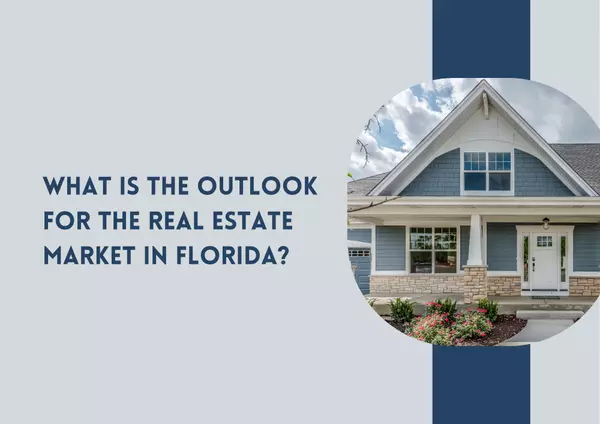
What is the outlook for the Real Estate Market in Florida?
Real estate, especially of Florida homes has always been an important topic of discussion about among home seekers, property investors and real estate firms across the globe. Good weather, beautiful beaches, fast growing vacancies and employment opportunities, and no state income tax – that is why people increasingly turn to the state referred as the Sunshine State. But how is the real estate market in Florida today and what should a potential buyer need to know? Now let’s look at the most significant trends, the current Florida homes stock, and some factors influencing this marketplace. Florida Homes Inventory: A Tight Market Florida has been facing a number of challenges due to the current real estate market which perhaps involves the shortage of homes for sale. A lot of people have been changing their residences in this year after the pandemic, and many of them decided to stay in Florida because of the weather, possibilities to earn money in contrast to other states, and the prices for houses which are, in average, lower than in other American states. While the increased demand for homes has been observed there has not been a corresponding supply to meet this demand. It has therefore led to increase in the prices of homes within many regions and bidding wars becoming rife within key cities like Miami, Orlando and Tampa. Avails of housing stock as reported by the Florida State Board of Realtors are still very low. Most of it is attributed to the scarcity of new constructions along with disruptions in supply chains and a lack of workforce. For buyers, this means that there are fewer houses to choose from and they must be will to spend a lot of money on a house; people must quickly grab an opportunity in a given estate. Florida State Board of Realtors: Market Insights The Florida State Board of Realtors keeps track and releases information of the Florida housing market trends persistently. Recent data indicates that low inventory situation means that currently, market is shifted towards sellers though there is a sign of balance. This indicates that while price continuing to growth, the rate of growth over the past few years has slowed when compare to the previous years. On the same year of 2023, the board recorded that the average house prices were nearly four hundred thousand US dollars which was higher than the prices of homes before the pandemic. In any case, these price increases do not put off buyers coming from other states with much higher average prices for instance New York or California. The board also recommend the buyers to think about other less active markets where stock is likely to be more obtainable. It is here that pensioners may find cheaper homes and better laid horses for longer term bets. Safest Cities in Florida to Live and Invest Security is one of the biggest concerns the population has when it comes to buying homes or choosing a neighborhood to live in whether it is for raising a family or to retire. There are more than a few cities in Florida sufficiently safe enough for inhabitants and real estates investment. According to recent studies, some of the safest cities in Florida include:According to recent studies, some of the safest cities in Florida include: - Satellite Beach: The city is situated in Brevard County and has been among the most secure towns in Florida based on crime statistics. This is because crime rate is low and there is a beach nearby making it a perfect holiday destination for families. - Parkland: Located in Broward County this small city provides residents with suburban life with great school systems that are appreciated by families. - Naples: Naples is situated on the Gulf coast of Florida it is one of the most affluent places to live and one of the safest locations in Florida. These cities combine the element of safety and affordability with quality of life that has been in high demand among the buyers. Also, properties in such regions normally experience a trend of holding their value due to the need to have and live in safe and comfortable environments. Cheap Houses in Florida to Buy Whereas some areas in Florida include mansions with millions of dollars it is still possible for those in search of cheap houses in Florida to buy. Real estates are relatively cheaper in low or modest traffic towns or in the countryside than in urban areas hence the hiked prices. Some of the more affordable cities include:Some of the more affordable cities include: - Ocala: Forwarding to the located city, Ocala, this is another equestrian city that is less developed and is comparatively cheaper to live in than Orlando with more countryside like atmosphere. - Pensacola: Preliminary, but seemingly undeniable signs of an increasing trend in the number of residents, and more importantly, relatively low prices of the real estate, make Pensacola an increasingly interesting market for buy and move into a new home. - Lakeland: Lakeland lies between Tampa, and Orlando, and it has relatively cheap housing than the two cities, though residents can easily access both cities. As much as these areas may not be as developed as say Miami or Tampa they offer great prospects to own a home or invest with little deep into your pockets. Conclusion: Is Now the Time to Buy? It is evident that the Florida real estate is rather saturated, or to be more precise, there is a lack of housing inventory which makes the prices get higher and higher, becoming a problem for the buyers. But the state continues to be appealing because of the lifestyle, business-friendly environment plus the weather hence demand might not be a problem. Be it people looking for affordable houses in Florida to buy or for those planning to move to one of the safest cities of Florida, it is most crucial to keep an eye on the market flashes. The Florida homes inventory has to be watched and, apart from that, there are valuable tips to follow from the Florida State Board of Realtors. Starting your home buying process or making a real estate investment? Connect with a local real estate expert who is well aware of the real estate market of Florida. Don’t you worry, you can always use some tips and tricks on how to win your way through the field of housing choice and get the most suitable one for you.
Categories
Recent Posts




